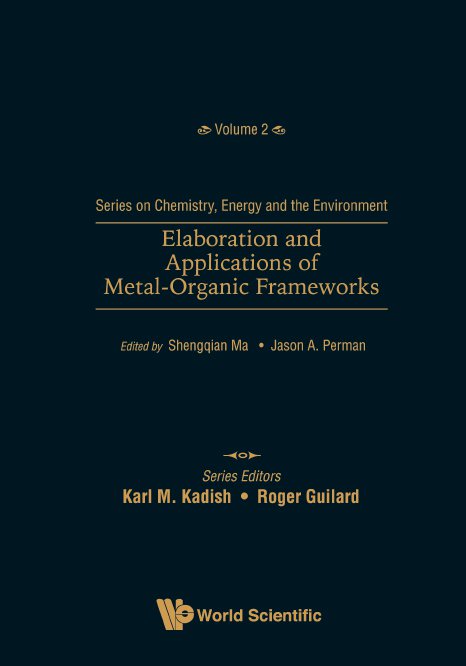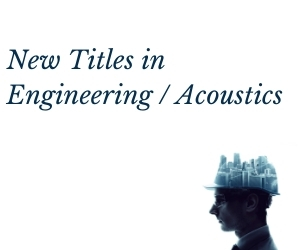System Upgrade on Tue, May 28th, 2024 at 2am (EDT)
Existing users will be able to log into the site and access content. However, E-commerce and registration of new users may not be available for up to 12 hours.For online purchase, please visit us again. Contact us at customercare@wspc.com for any enquiries.
This title takes researchers in as well as out of the field of metal-organic framework (MOF) and then guides them on a journey to rediscover and rethink how these designer coordination polymers will influence the realm of materials science. This book opens with a look at a deeply controversial issue, MOF stability, which has plagued many systems, but ultimately has led to better materials that proved to be more robust allowing them to be investigated for multiple applications. This book successfully highlights many of these useful applications that MOFs are well adapted for. Because MOF components, inorganic and organic, can combine the best of both chemical domains, MOFs will improve our environment by removing harmful contaminants from the air and water, reduce the energy required to perform chemical reactions, partition hard to separate molecular mixtures, and form the next-generation of magnetic and electronic materials. MOFs will eventually be used for everyday activities — for monitoring or reacting to changing conditions. Readers of this book can then take note and implement MOFs in their line of research.
Sample Chapter(s)
1: Design and Construction of Chemically Stable Metal-Organic Frameworks (3,321 KB)
- Design and Construction of Chemically Stable Metal-Organic Frameworks (Hao Li, Mario Cosio, Kecheng Wang, William Burtner and Hong-Cai Zhou)
- A Survey of Metal-Organic Frameworks Based on Phosphorus- and Sulfur-Containing Building Blocks (Joseph E Reynolds III, Samuel G Dunning, Calla M McCulley and Simon M Humphrey)
- Postsynthetic Linker Exchange in Metal-Organic Frameworks (Soochan Lee and Wonyoung Choe)
- Hydrogen Storage in Metal-Organic Frameworks (Gaurav Verma, Jason A Perman and Shengqian Ma)
- Methane Storage in Metal-Organic Frameworks: Insights into the Storage Performance and the Intrinsic Property Relationships for Enhanced Adsorbed Natural Gas Storage (Dalal Alezi, Youssef Belmabkhout and Mohamed Eddaoudi)
- Separation of Light Hydrocarbons by Metal-Organic Frameworks (Jia Liu, Ruqiang Zou and Yanli Zhao)
- Metal-Organic Framework Membrane Synthesis and Applications (Ming Xue and Shilun Qiu)
- Metal-Organic Frameworks: An Advanced Class of Anion-Exchange Materials (Shivani Sharma, Avishek Karmakar and Sujit K Ghosh)
- Metal-Organic Frameworks for Heavy Metal Removal (Yan-Lung Wong, Yunlong Hou and Zhengtao Xu)
- Synthesis and Applications of Homochiral Metal-Organic Frameworks (Zhi-Gang Gu and Jian Zhang)
- Metal-Organic Frameworks as Solid Acid Catalysts for Heterogeneous Catalysis (Sanil E Sivan, Young Kyu Hwang and Jong-San Chang)
- Metal-Organic Frameworks-Based Heterogeneous Catalysts for Biomass Conversion (Zhigang Hu and Dan Zhao)
- Metal-Organic Frameworks for Photocatalysis (Xin Zhang and Jian Zhang)
- Energy Transfer in Metal-Organic Frameworks (Jie Zhu, Shaunak Shaikh, Nicholas J Mayhall and Amanda J Morris)
- Electrically Conductive Metal-Organic Frameworks (Nagapradeep Nidamanuri, Krishnendu Maity and Sourav Saha)
- Metal-Organic Frameworks as Platforms for the Nanostructuring of Molecular Magnets (Darpandeep Aulakh and Mario Wriedt)
Readership: Professors, graduate and undergraduate students in Engineering, Chemistry, and Material Sciences discipline, High School STEM Programs, Scientific Libraries, Material Manufacturers, Oil Companies, Refineries, Environmental Agencies, Battery Companies, Energy Industries and Advanced Sensor Companies.

























